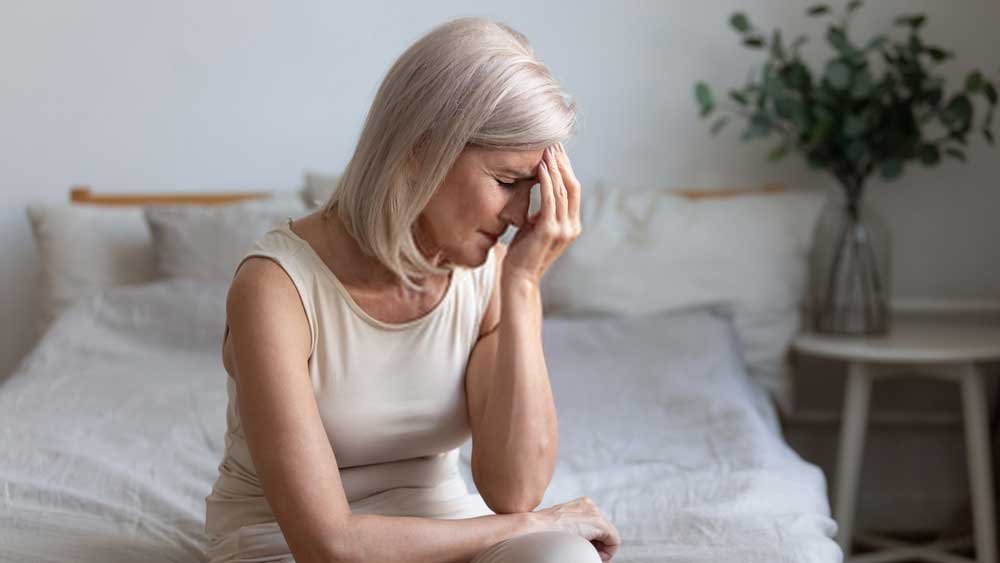Menopause is not a malfunction, but a natural, nature-programmed, irreversible cessation of menstruation as a result of a decrease in the levels of estrogen and progesterone, the two main female hormones produced by the ovaries, which have receptors in all body systems: in the cardiovascular, nervous, and bone. And having nearly lost them, the body experiences a kind of withdrawal period. Of course, this affects the well-being of a woman and menopause and anxiety combination is quite a common event to happen.
Depending on the hereditarily determined number of certain receptors that are sensitive to a decrease in female sex hormones, some women with the onset of menopause begin to experience problems from the cardiovascular system and others from the genitourinary and the central nervous system (menopause anxiety).
Can menopause cause anxiety?
Yes, it can and this is a fairly common phenomenon. The roots of this problem should be sought in the hormonal changes in the woman’s body, as well as her environment and a lack of support in this difficult period.
Menopause anxiety symptoms
Having menopause anxiety a woman shakes her hands constantly, she is fussy, cannot sit still, constantly rubbing her hands or neck and twitching her foot. She sweats, her heartbeats frequently. A person cannot focus her eyes on one subject for a long time, speaks quickly, abruptly interrupts the conversation. However, she cannot explain to herself or others what exactly is bothering her. Sometimes, this condition is perceived as a norm by a menopausal woman or a premonition of something bad. It happens, the patient finds a cause for the anxiety menopause. But when checking this reason, it does not matter much to the patient.
The psychiatrist care is the basis of menopause anxiety curing
The treatment of post menopause symptoms anxiety is unthinkable without the competent work of a psychiatrist. In sessions, the patient understands the cause of her condition and analyzes it. The doctor can rule out other disorders and conditions caused by physiological causes and accelerate recovery.
A competent specialist will assess the patient’s condition, conduct diagnostics, and rule out any other diseases and conditions. In many cases, the psychiatrist excludes the anxiety disorder itself. The doctor:
-
develops a treatment plan, selects methods, and drugs that will help to cope with the menopause anxiety symptoms;
-
carries out psychotherapeutic treatment – individually and in a group with other patients;
-
prescribes medications, if necessary;
-
monitors the patient’s condition during treatment and after.
The results of therapy, of course, depend on the degree of the severity of the menopause anxiety and the goodwill of the patient. But the main role is played here by the professionalism of the doctor who selects the treatment and “leads” the patient with anxiety menopause.
The most important thing is not to try to cope with the problem by herself or deny its presence. This is a disease that requires treatment and, at the same time, it must be timely and of high quality. You can’t follow the prejudice and be afraid to appear weak; do yourself a great service and seek help because it is very close.



